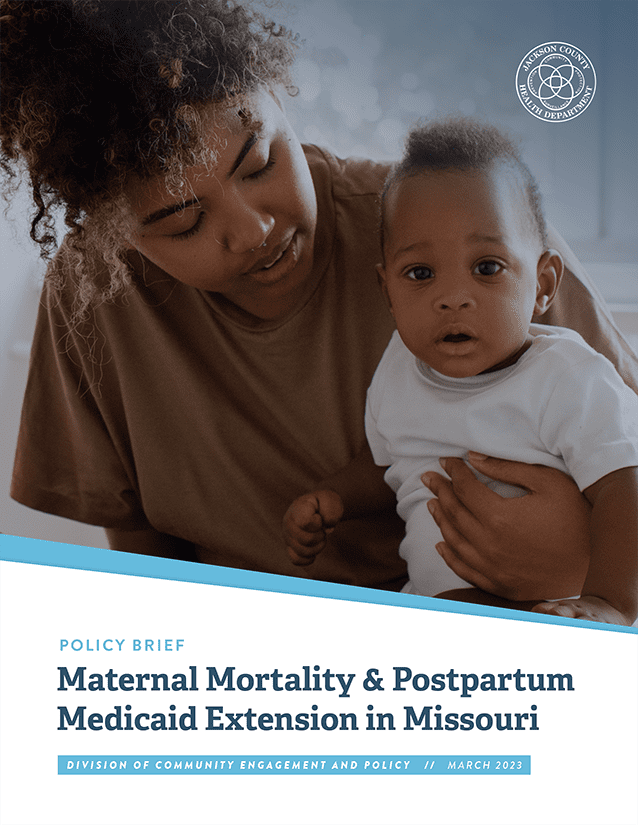For Missouri Moms, Extending Postpartum Coverage is Essential

In Missouri, a pregnant woman’s concerns are not limited to the health of her future child—she must also worry for her own health.
Missouri ranks 44th in the nation for maternal health outcomes. An average of 61 women die each year during pregnancy or within one year postpartum. Furthermore, Black women are four times more likely to die of pregnancy-related causes. This striking example of inequality in maternal health care is just one of the disparities that exist along lines of race, education, geography, and economic status.
A multi-year study on maternal mortality, conducted by the Missouri Department of Health and Human Senior services in conjunction with the Pregnancy Associated Mortality Review Board, demonstrates how Missouri’s widespread disparities in pregnancy care intensify pre-existing racial and socioeconomic inequity in the state.
The Missouri PAMR dashboard gives a look into maternal health outcomes in Missouri.
As with most health issues, access to the right coverage makes a big difference. Medicaid covers nearly 50 percent of all births and pregnancy care in the US, but it only covers pregnant women for 60 days postpartum. Now, however, states can opt to extend postpartum Medicaid coverage to 1 year, authorized by President Biden’s American Rescue Plan Act (ARPA). The Missouri Foundation for Health estimates that 4,500 women in Missouri would gain access to continuous coverage by extending coverage to 1 year. While Missouri came close to extending postpartum coverage last year, they ultimately failed in passing the legislation before the end of the session.
Women are particularly vulnerable for mental health and cardiovascular conditions within 1 year postpartum. Inconsistent insurance coverage may prevent women from receiving the specialized care they need to catch crucial signs of these conditions in the postpartum period. Additionally, only about 40 percent of women on Medicaid have a postpartum follow-up visit at all, which may be explained by the short 60 day window of coverage.
Ultimately, when Medicaid coverage is extended, women are more likely to use services that lead to happy and healthy families. To learn more about this issue, read our full report.
Archives
- February 2026 (1)
- December 2025 (1)
- November 2025 (2)
- September 2025 (1)
- July 2025 (2)
- June 2025 (3)
- April 2025 (2)
- January 2025 (2)
- December 2024 (1)
- September 2024 (2)
- August 2024 (2)
- July 2024 (1)
- June 2024 (1)
- February 2024 (1)
- July 2023 (1)
- March 2023 (1)
- October 2022 (1)
- September 2022 (1)
- August 2022 (1)
- July 2022 (2)
- June 2022 (2)
- May 2022 (1)
- April 2022 (4)
- March 2022 (1)
- February 2022 (1)
- January 2022 (1)
- December 2021 (4)
- November 2021 (3)
- September 2021 (2)
- August 2021 (3)
- July 2021 (2)
- June 2021 (1)
- May 2021 (2)
- March 2021 (1)
- December 2020 (6)
- November 2020 (8)
- October 2020 (4)
- September 2020 (7)
- August 2020 (3)
- July 2020 (11)
- May 2020 (2)
- April 2020 (4)
- March 2020 (1)
Categories
- Communicable Disease (5)
- Clinical Services (19)
- Clinical Servcies (1)
- Health Promotions (74)
- Emergency Preparedness (8)






